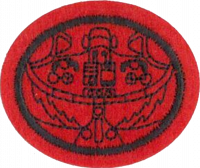Difference between revisions of "AY Honors/Aviators/Requirements"
| Line 33: | Line 33: | ||
::<b>i. <section begin=req1bi /><noinclude><translate><!--T:7--> | ::<b>i. <section begin=req1bi /><noinclude><translate><!--T:7--> | ||
</noinclude>Helicopter | </noinclude>Helicopter | ||
| − | <noinclude></translate></noinclude><section end= | + | <noinclude></translate></noinclude><section end=req1bi /></b> |
::<b>ii. <section begin=req1bii /><noinclude><translate><!--T:8--> | ::<b>ii. <section begin=req1bii /><noinclude><translate><!--T:8--> | ||
</noinclude>Gyro plane | </noinclude>Gyro plane | ||
| − | <noinclude></translate></noinclude><section end= | + | <noinclude></translate></noinclude><section end=req1bii /></b> |
:<b>c. <section begin=req1c /><noinclude><translate><!--T:9--> | :<b>c. <section begin=req1c /><noinclude><translate><!--T:9--> | ||
Revision as of 17:12, 14 May 2021
1. Identify, with real aircraft, the five categories of aircraft and the different classes within each category.
- a. Airplanes
- i. Single-engine, land
- ii. Multi-engine land
- iii. Single-engine sea
- iv. Multi-engine sea
- b. Rotor-craft
- i. Helicopter
- ii. Gyro plane
- c. Glider
- d. Powered lift
- e. Lighter than air
- i. Balloon
- ii. Airship
2. Be involved in an interactive discussion that explores the following:
- a. Bernoulli’s principle and how it applies to airplanes
- b. The four forces of flight and how each affects the flight of an airplane.
- c. Three types of aircraft and their uses in aviation today.
- d. The three principal axes of an airplane. Demonstrate the type of movement the aircraft does on each axis and what controls that movement.
- e. Different types of engines, wings, and other gear and their application/usage.
3. Correctly identify on a real plane the following exterior parts of an airplane.
- a. Cowling or Nacelle
- b. Propeller
- c. Landing Gear
- d. Wing
- e. Flap
- f. Right Aileron
- g. Left Aileron
- h. Fuselage
- i. Empennage
- j. Horizontal Stabilizer
- k. Vertical Stabilizer
- l. Elevator
- m. Rudder
4. Correctly identify on a real plane the following parts of the interior of an airplane.
- a. Altimeter
- b. Attitude Indicator
- c. Airspeed indicator
- d. Magnetic compass
- e. Heading Indicator
- f. Turn coordinator
- g. Vertical Speed indicator
- h. Yoke
- i. Brakes
- j. Rudder Pedals
- k. Throttle control
- l. Trim Control
5. Choose 3 historical figures in aviation who have had an impact on aviation history. Detail their role and importance in aviation history. Some possible figures include: Leonardo da Vinci, Daniel Bernoulli, Sir George Cayley, Otto Lilienthal, Gustave Whitehead, Octave Chanute, Orville & Wilbur Wright&, Glen Hammond Curtiss, or Amelia Earhart.
6. Do one of the following:
- a. PREFERRED: Take an intro flight in an airplane and observe the different movements made by three different control surfaces. Record your observations.
- b. (If an intro flight is not possible) Demonstrate and explain on the ground the different movements made by three different control surfaces. You may do this demonstration on a real aircraft or in a flight simulator.
7. Do one of the following:
- a. Interview a mission pilot or missionary who has used airplanes to help tell people about Jesus. As a result of your interview be able to:
- i. List three ways God uses mission aviation to spread the gospel, based on the Great Commission of Matthew 28:18-20
- ii. List three ways you as a Pathfinder can help our mission pilots
- b. Interview a commercial full-time pilot. As a result of your interview be able to:
- i. List three ways pilots can share Jesus within their workplace, based on the Great Commission of Matthew 28:18-20
- ii. List three ways you as a Pathfinder can share Jesus within a non-church environment.
- ↑ The Wright brothers are one historical character


